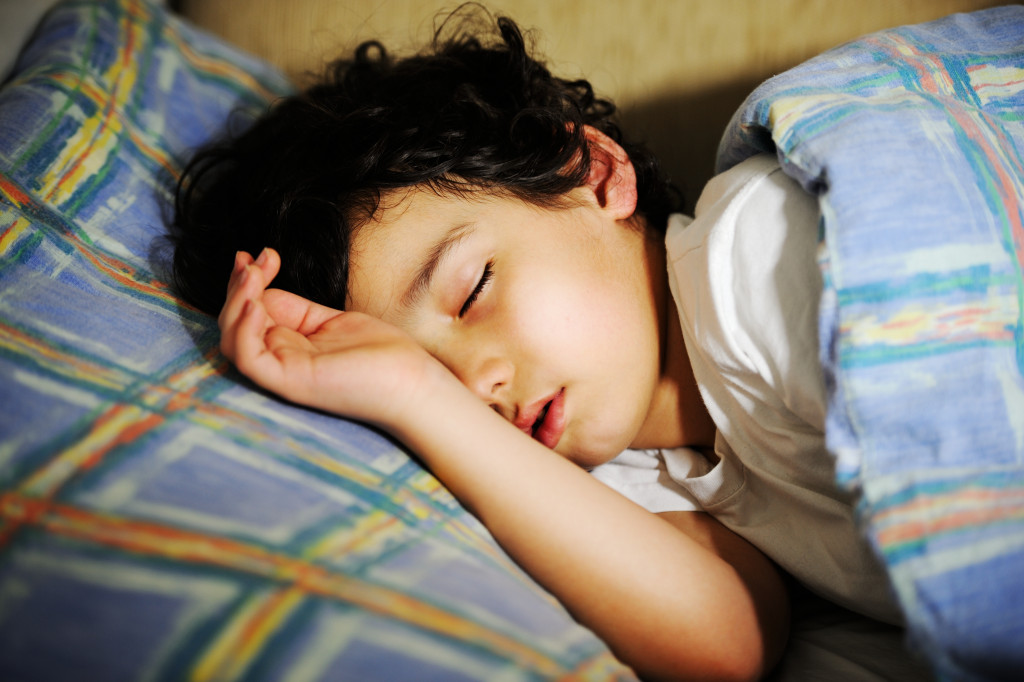It can be alarming to find out your child is snoring, as it can signify a more severe problem. According to the National Sleep Foundation, snoring is present in about 90% of children with obstructive sleep apnea (OSA), a severe sleep disorder. OSA can cause health problems such as heart disease, high blood pressure, and diabetes. It can also lead to poor school performance and behavior problems. If you think your child may be snoring, the alarm bells are already ringing.
However, there might not be cause for alarm. Many children snore, but not all of them have OSA. Most children who snore don’t have any health problems at all. Fortunately, you can find ways to lessen or even stop your child’s snoring.
Correcting their Sleeping Position
A person’s sleeping position can determine whether they snore or not. If your child sleeps on their back, gravity pulls down on the soft palate and tongue, which can block the airway and cause snoring. Try having them sleep on their side instead. It will help to keep the airway open so they can breathe easily throughout the night.
If your child’s snoring persists, you may need to elevate their head while they sleep slightly. It will open up their airway and help them to breathe more easily. You can prop up their head with a pillow or two or invest in an adjustable bed you can raise.
However, it can be challenging to do that when you and your kid sleep in different rooms. So, the next time you’re at the store, pick up some foam wedges or blocks to place under their mattress. It will slightly elevate their head while they sleep and make a difference.
Use Anti-Snoring Devices

Many products on the market can help to reduce or stop snoring. One of the most popular is a nasal dilator, which fits into the nostrils and prevents them from collapsing. It will keep the airway open and make breathing easier for your child at night.
Another device that can be helpful is an oral appliance. It’s similar to a mouthguard and helps to keep the airway open by bringing the lower jaw forward. These appliances are usually only recommended for children with mild to moderate OSA.
If your child has OSA, they may need to use a continuous positive airway pressure (CPAP) machine. It’s a mask that covers their nose and mouth and delivers pressurized air to keep their airway open. It’s the most effective treatment for OSA, but it can take some time for your kid.
Another device will be arch expansion devices. It’s a mouthpiece that will help to expand the upper jaw and palate. It can take a few months of use before you notice any difference, but it can be helpful for some children.
Your child may also benefit from wearing a sleep positioner. It’s a device that helps to keep them in the side-sleeping position, so they don’t roll over onto their back during the night. Surgery should only be considered a last resort when other methods haven’t worked. If your child has OSA, they may need surgery to remove tonsils and adenoids or to widen their airway.
Change Kid’s Diet and Lifestyle
You can do a few things to help reduce your child’s snoring. One is to have them avoid dairy products before bedtime. Dairy can increase mucus production and make it more likely for your child to snore.
Another thing you can do is have them exercise regularly. Exercise can help to tone the muscles in the throat and improve airflow. It’s also good for overall health and well-being.
You should also help your child to maintain a healthy weight. Being overweight or obese can contribute to snoring because more tissue in the neck can block the airway.
Finally, try to keep their bedroom cool and free of allergens. Dust mites, pet dander, and pollen can all make snoring worse.
Talk to Your Kid’s Doctor
If your child is snoring, it’s a good idea to talk to their doctor. They can help rule out any underlying medical conditions and give you tips on reducing or stopping snoring.
Your doctor may also refer you to a sleep specialist. A sleep specialist can help to diagnose and treat sleep disorders like OSA. They may also recommend a sleep study to see how well your child breathes at night.
An ENT specialist can also help if your child has OSA. They can recommend the best course of treatment, which may include surgery. While snoring is often harmless, it can signify a more serious problem. So, if you’re concerned about your child’s snoring, talk to their doctor.
Final Thoughts
If your child is snoring, you can do a few things to help. Try elevating their head, using anti-snoring devices, or changing their diet and lifestyle. If these don’t work, talk to your kid’s doctor for more tips and treatment options.




